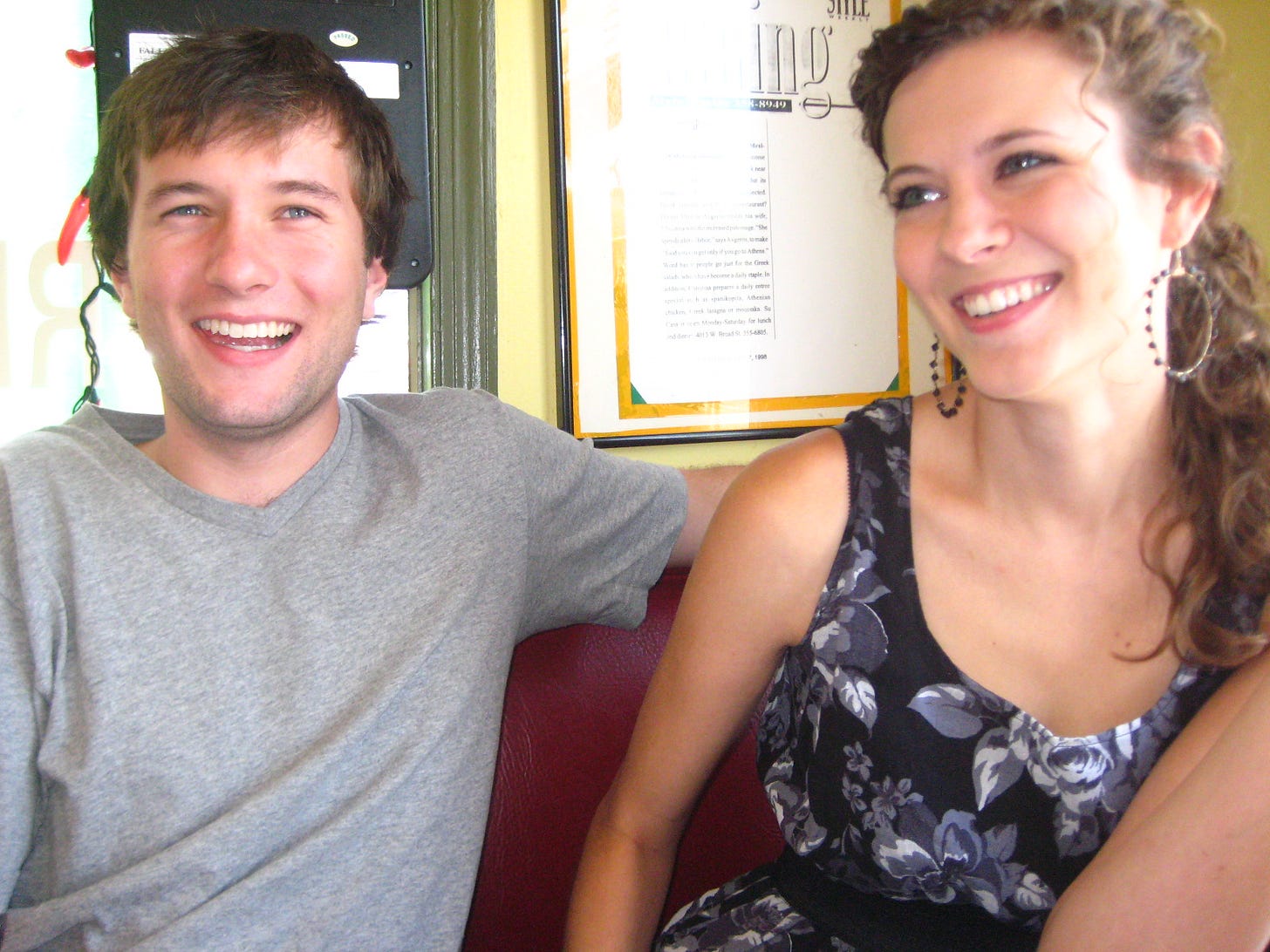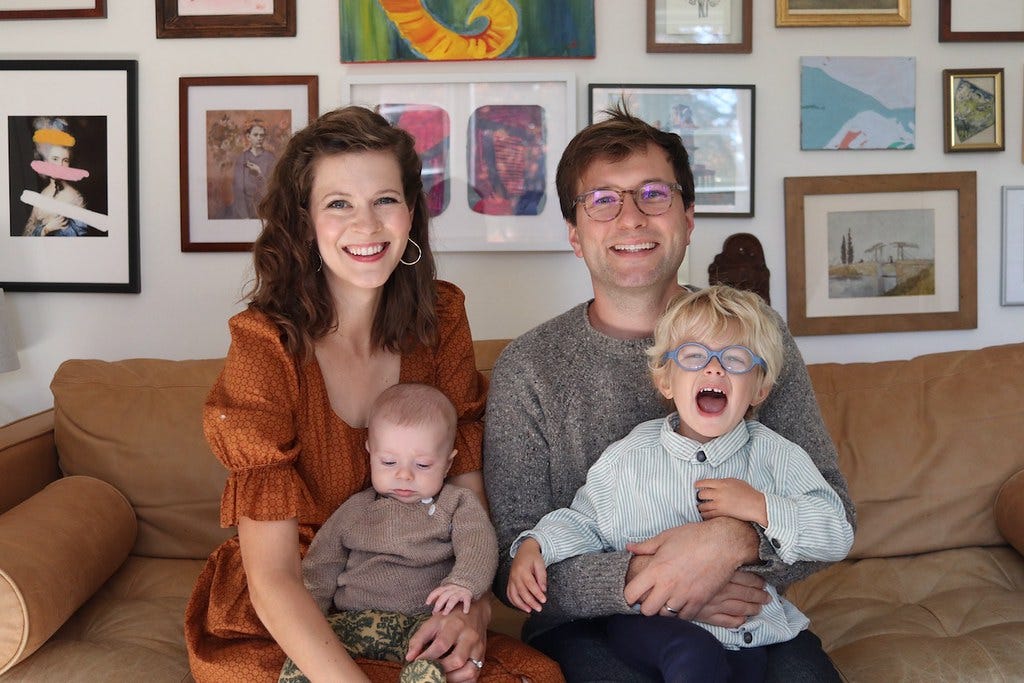Time is very short, and we’re all hurtling toward death at a speed with which none of us can properly contemplate.
I think about death a lot when I think about marriage. The two are intimately linked, necessarily so, in my mind. When I think about Guion, and our 12 years of marriage, I think of our deaths. This is not because I’m especially morbid, but because I believe marriage is really just a lovely way of processing time and the limited amount we’ve been given.
Kierkegaard, despite not being married himself, posited thus in Either/Or:
“Married love, then, has its enemy in time, its victory in time, its eternity in time; so even were I to imagine all so-called external and internal trials gone, it would always have its task.”
Marriage would always have its task, and that task is, at its core, a reckoning with mortality. Yes, love- and life-making are in there too, but death is the persistent undercurrent running beneath wedded bliss.
This isn’t easy for us to swallow. In our American empire, hopped up on Bachelor in Paradise and gratingly anachronistic Jane Austen remakes, we’d really rather not think of marriage in these terms. Death must always be far from us, if we are to succeed in this capitalistic dreamscape. And so we build palaces and watch porn and get plastic surgery and eat vegan pizzas to keep ourselves from it. But death is always right around the corner, even for ebullient Americans.
Twelve years in, I’ve come to believe that marriage is one of our best tactics to deal with the fact of our deaths, intimately and daily.
I’m not such an outlier on this. In my faith tradition, death is bound up in the marriage vows. You cannot separate it from the pomp and joy and flowers and rings. The full portion of the famous “for better for worse” vow includes the phrase that many know as “till death do us part”:
“… to have and to hold from this day forward, for better for worse, for richer for poorer, in sickness and in health, to love and to cherish, until we are parted by death. This is my solemn vow.”
You could read this phrase only as a commitment to lifelong fidelity, which it is, but it’s also about the term limits, the very temporal bounds of this relationship. The liturgy urges us to keep death top of mind when we are at the altar, because it’s death—our death, specifically—that’s driving this whole show.
And then, toward the end of the marriage rite, comes a blessing from the priest, which reminds us, twice, in case we weren’t listening the first time, that death is nigh:
“Bless them in their work and in their companionship; in their sleeping and in their waking; in their joys and in their sorrows; in their life and in their death. Finally, in your mercy, bring them to that table where your saints feast for ever in your heavenly home; through Jesus Christ our Lord, who with you and the Holy Spirit lives and reigns, one God, for ever and ever. Amen.”
Among its many gifts, marriage is good because it reminds us that we are dying.
Everything becomes a little more precious—and a little less weighty—when we remember our fast-approaching demise. I am not expressing myself clearly, but I find a great deal of peace in this connection between the decay of my physical body and my promise to have and hold Guion.
Kierkegaard again:
“Married love is, therefore, at one and the same time what you have often mockingly called the everyday and also the divine (in the Greek sense), and it is the divine through being the everyday. Married love does not come with an external mark, not like the rich bird with a rush and a roar, it is the incorruptible being of a quiet spirit.”
No rich birds here. Just a husband and wife trying to remember, with good cheer, that it will all be over soon.
Currently Reading
Essays Two, Lydia Davis
Planting: A New Perspective, Piet Oudolf
Good Bones, Maggie Smith





I’m currently reading “Crossing to Safety” with some friends from church and these thoughts fits the portrayal of marriage from the book so perfectly. Thank you for sharing this!